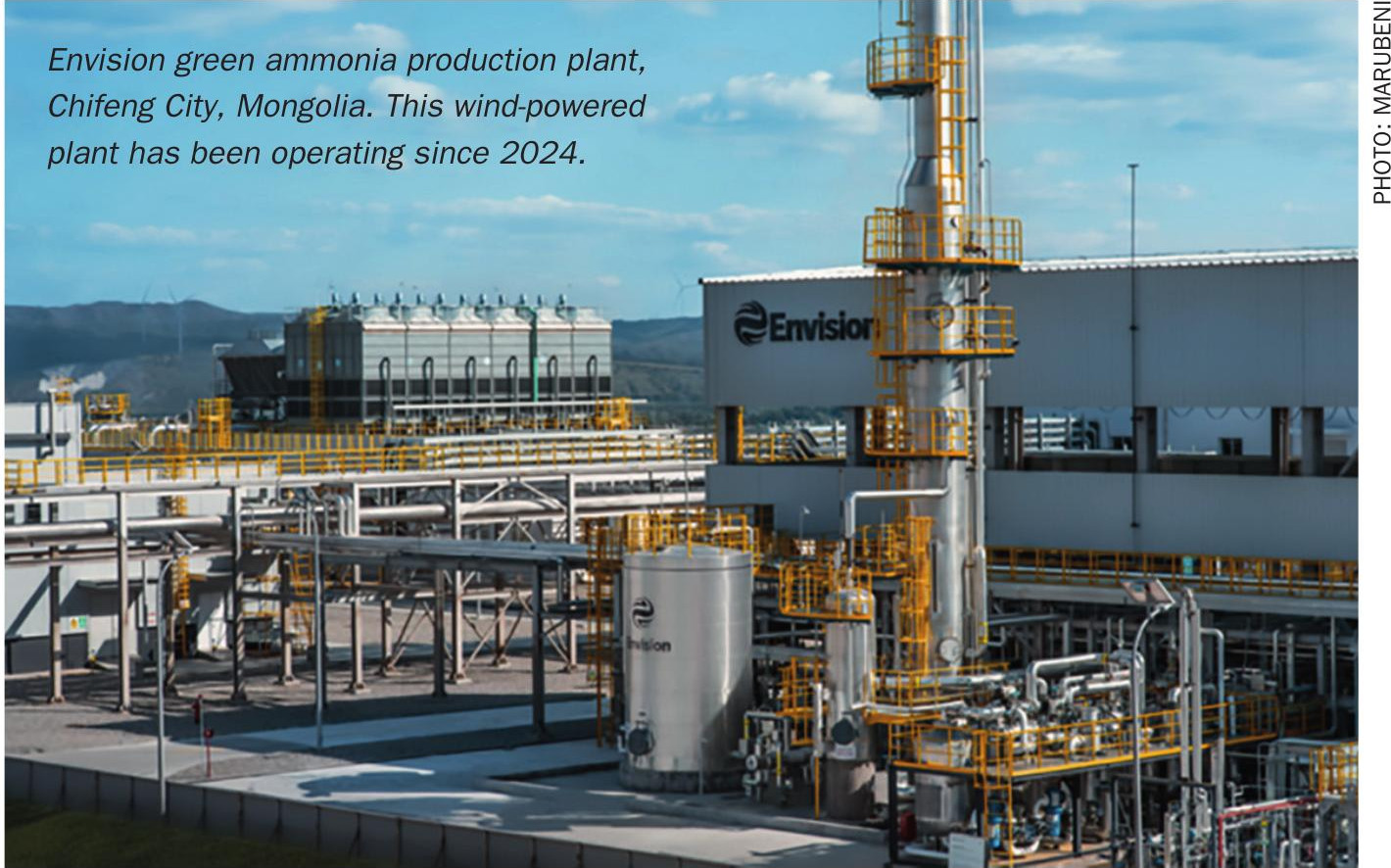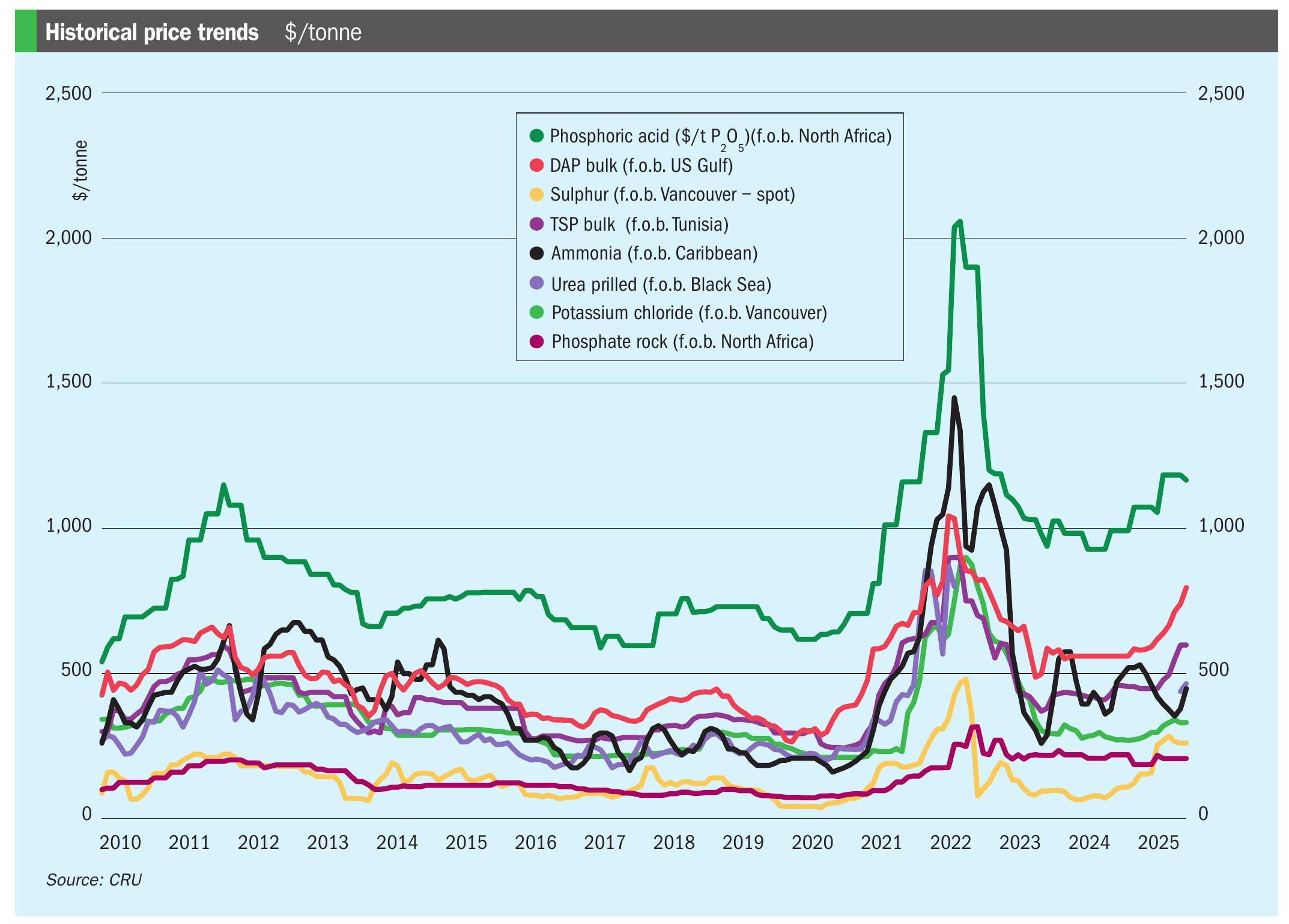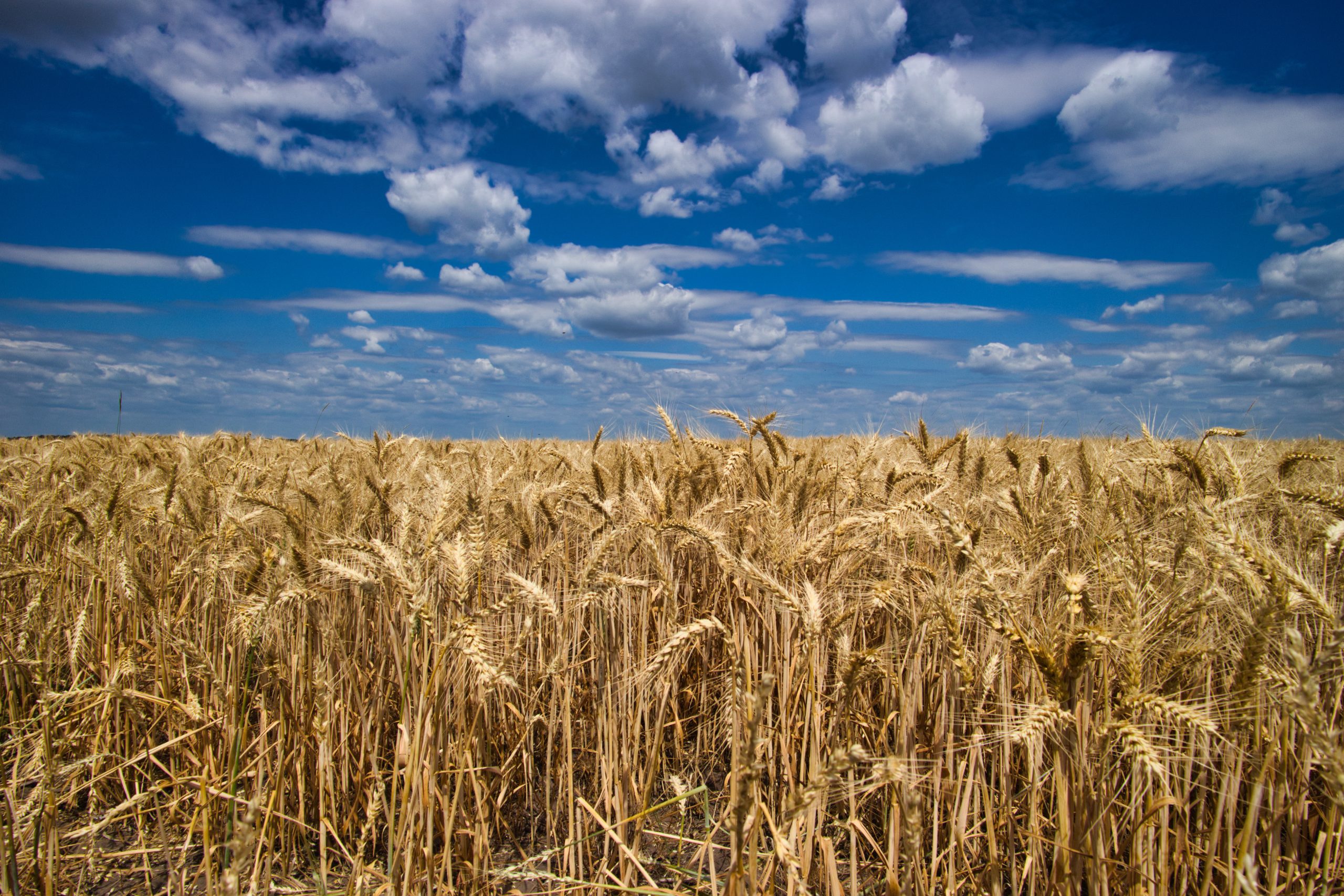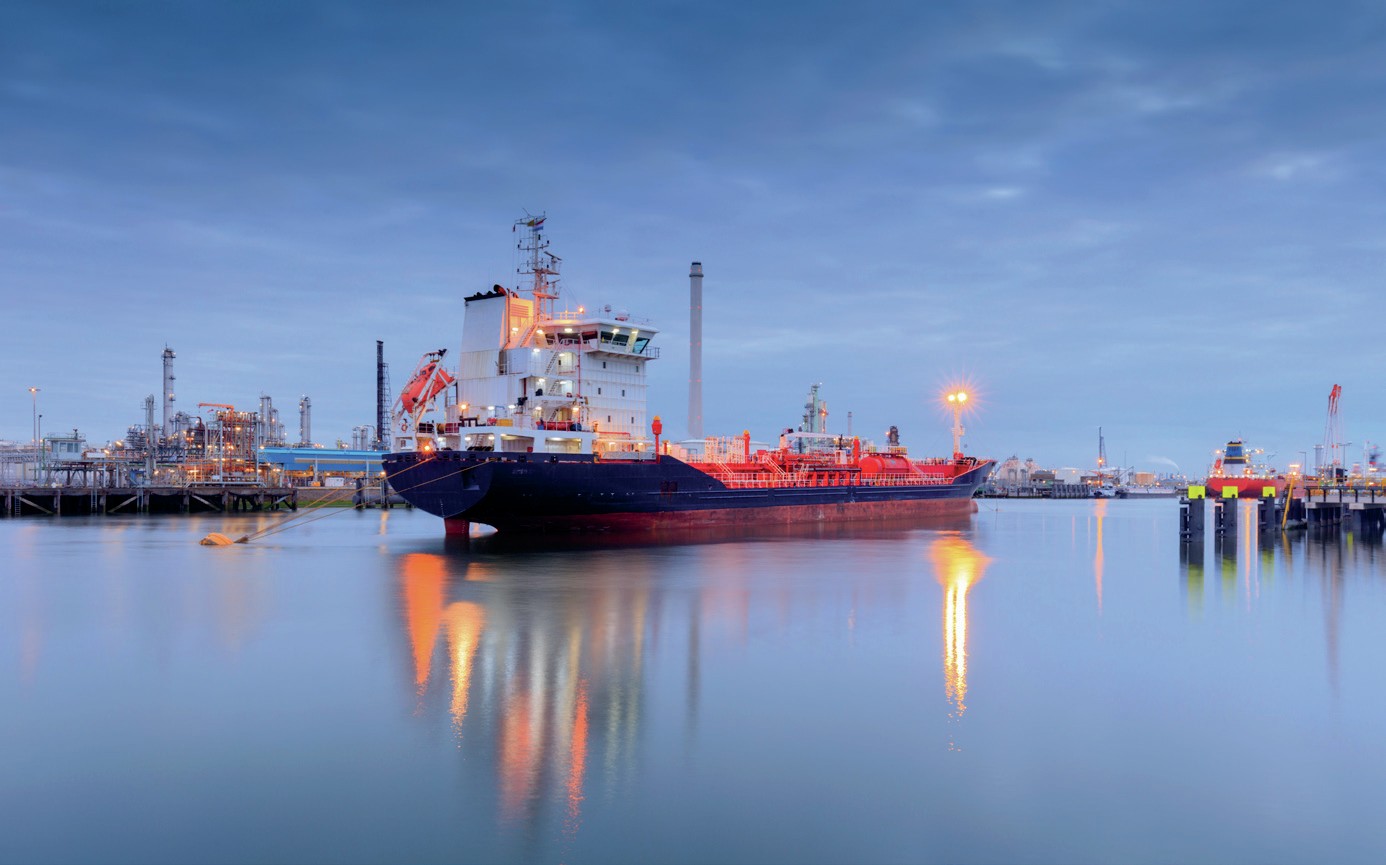Fertilizer International 507 Mar-Apr 2022

31 March 2022
Serra do Salitre project profile
PROJECT REPORT
Serra do Salitre project profile
EuroChem Group recently completed the purchase of the Serra do Salitre project from Yara International for $452 million. This one million tonne capacity Brazilian phosphate project is due to be completed in 2024.

Brazil’s growing phosphates supply/ demand deficit over the next decade will have to be met by more imports and/or increases in domestic production capacity. The latter is set to receive a substantial boost when the Serra do Salitre project becomes operational in 2024.
Flagship investment project
Swiss-headquartered EuroChem Group is the new owner of the under-construction Serra do Salitre phosphate project in south-eastern Brazil. This follows the completion of the purchase from Norway’s Yara International for $452 million on 22nd February. The acquisition was originally announced last August (Fertilizer International 504, p9).
This well-advanced flagship project is said to be the largest ever private sector investment in Minas Gerais state. It is also ideally located, being close to Brazil’s major fertilizer-consuming markets. Serra do Salitre started life in 2014 as a joint venture between Yara and Brazilian producer Galvani, before becoming 100 percent Yara-owned in October 2018 (Fertilizer International 488, p45).
The project represents a major expansion of Brazilian fertilizer production capacity. Once operational, its output will displace one million tonnes of phosphate fertilizer imports, helping to reduce the country’s reliance on international supply and yawning trade deficit in fertilizers.
The purchase is part of EuroChem’s growth strategy for Latin America, one of the world’s largest and fastest-growing regional fertilizer markets. It follows the company’s buy-out of Fertilizantes Tocantins for $230 million in 2020 and the acquisition of a controlling share in Fertilizantes Heringer last December – two of Brazil’s leading fertilizer distributors.
Brazil is the region’s pre-eminent fertilizer market and a global agricultural powerhouse. The country consumed 46.0 million tonnes of fertilizers in 2021, a yearon-year increase of 5.4 million tonnes.
Commenting on the acquisition of Serra do Salitre last August, EuroChem said:
- “Brazil is one of the world’s biggest fertilizer markets, and phosphates are considered to be one of the three primary nutrients… that plants require for healthy growth. Due to nature of the crop mix in Brazil – 44 percent of which is soybean – Brazilian demand for phosphate-based fertilizers is higher than in other regions, with half of consumed phosphate fertilizers within the country covered by imports.
- “Serra do Salitre is strategically located within Brazil’s agricultural heartland, where domestic demand is robust. The phosphates it supplies will slot seamlessly into EuroChem’s production and distribution operations.”
- Serra do Salitre is one of the largest industrial investments currently underway in Brazil. Previous owner Yara invested $229 million in the project in 2020, following similar substantial investments in 2018 and 2019 (Fertilizer International 502, p26). EuroChem says it will now invest a further $452 million (approximately) to bring the project into production.

Two phase project
The Serra do Salitre project is divided into two phases. The initial phase, which came onstream in 2018, involved the completion of a 1.2 million tonne capacity phosphate rock mine and associated beneficiation plant. This delivered its first 150,000 tonnes of mined rock in early 2018. A one million tonne capacity production plant for finished phosphate products is now scheduled to be completed, as part of the project’s second phase.
Building a fully integrated fertilizer production plant in Brazil is a costly, complex and highly ambitious venture. Almost inevitably, there has been some slippage in project delivery, partly due to the Covid19 pandemic, with finished phosphate production originally due to start the first-quarter of 2020. This was subsequently rescheduled to the second-half of last year. Under a new timetable, EuroChem now plans to start production by 2024 and then ramp up to full capacity in 2025.
EuroChem buys Serra do Salitre from Yara
EuroChem Group completed the purchase of the Serra do Salitre phosphate project from Yara International for $452 million in February. The deal was originally announced in August last year.
Serra do Salitre is an integrated phosphates project located in Minas Gerais state in south-eastern Brazil. It combines a 1.2 million tonne capacity phosphate mine – and access to more than 350 million tonnes of reserves – with a one million tonne capacity phosphate fertilizer plant. This is capable of manufacturing MAP/NP and SSP/TSP products.
The project also includes a sulphuric acid plant, a phosphoric acid plant, and a 400,000 tonne capacity storage unit for granulated fertilizers such as urea and potash.
Although Serra do Salitre is a well-advanced project that has been under construction since 2015, further capital expenditure of around $452 million will be required to complete the project. “Salitre remains an attractive project, but as previously communicated the project’s progress has been impacted by Covid 19, and significant construction time and capital expenditure remains to reach completion,” Yara said in a statement last August.
The project’s mine and beneficiation plant are already operational (Fertilizer International 502, p26) and currently producing around 500,000-600,000 tonnes of phosphate rock. This is generating positive earnings from third-party concentrate sales. The under-construction phosphate production complex, meanwhile, is now due to become operational in 2024.
Brazil is an agricultural powerhouse with a high demand for phosphate fertilizers due to the scale of crop production and its crop mix, particularly the prevalence of soybean cultivation. As a domestic producer, Serra do Salitre should be strong position to capture market share, given that the country currently depends on imports for half of its phosphate requirements. The project is also strategically located within Brazil’s agricultural heartland, where domestic fertilizer demand is strong.
“This expansion will allow us to reduce dependency on third-party phosphate supplies, and also creates the potential for phosphates and complex fertilizer production in Brazil,” said Vladimir Rashevskiy, EuroChem’s CEO. “It significantly improves our competitive position in Brazil, and enables us to leverage the extensive blending and distribution capabilities brought by the acquisition of Fertilizantes Tocantins, which we completed last year.”
Yara said the divestment was a strategic move that would allow the Norwegian fertilizer giant to focus on new priorities such as premium products and the hydrogen economy.
Once brought on-stream and fully ramped-up, Serra do Salitre will add an extra one million tonnes to EuroChem’s existing annual phosphate and complex fertilizer output of five million tonnes. EuroChem already operates two phosphate mines – the Kovdorskiy GOK facility in northern Russia and EuroChem Fertilizers in Kazakhstan. The Swiss-headquartered company currently manufactures a range of premium-quality MAP, DAP, NP and feed phosphates at several production sites in Russia and Lithuania.

The scale of the project is such that it will increase national P2 O5 production by around 20 percent when it does finally start up. Once fully operational, Serra do Salitre will generate:
- 900,000 tonnes of sulphuric acid
- 1.2 million tonnes of phosphate rock
- 250,000 tonnes of phosphoric acid
- One million tonnes of granulated finished phosphate products
- More than 1.2 million tonnes of gypsum
- 1,500 jobs during the operational phase
- Around 29 MW of energy.
Mining and beneficiation
Serra do Salitre’s transition-to-operation (TTO) began in 2017. This set 20 milestones and was vital to ensuring the successful on-time delivery of phase one of the project (Fertilizer International 488, p45). With the completion of the first phase of the project, phosphate rock is now being extracted and upgraded using froth flotation to produce a phosphate concentrate. This was being supplied to Yara’s Paulínia production plant in Sao Paulo state.
With ore reserves of more than 350 million tonnes, Serra do Salitre’s phosphate mine has an estimated life of 25 years. Friable ore is extracted by excavators at the open-pit site and transported using a fleet of 30-tonne Volvo articulated trucks and 35-tonne Mercedes-Benz trucks. The ore is crushed at the mine before being transported to the beneficiation plant via a two-kilometre belt conveyor. Apatite-bearing ore with a P2 O5 content of 4.7 precent is then upgraded in the beneficiation plant to produce a high-grade phosphate concentrate containing 33 percent P2 O5 (Fertilizer International 502, p26).
Phosphate fertilizer production
Following successful completion of the first phase in 2018, a second construction phase to complete the project’s fertilizer production complex was due to finish in the second half of 2021 (Fertilizer International 502, p26). However, this timetable has been revised by new owners Euro-Chem with the project now expected to become fully operational in 2024.
The Serra do Salitre complex includes a sulphuric acid plant, phosphoric acid plant and a fertilizer granulation plant. The project was around 50 percent complete, as of last August, although the mine and beneficiation plant are already producing positive earnings.
Serra do Salitre will eventually ramp-up to annual production of 1.2 million tonnes of phosphate concentrate and one million tonnes of finished phosphates. Its product mix will include diammonium phosphate (DAP), monoammonium phosphate (MAP), nitrophosphate (NP), single superphosphate (SSP) and triple superphosphate (TSP).
The amount or piping alone provides some indication of the scale-up in construction work between phases one and two of the project. in phase one, the mineral processing plant required 700 tonnes of piping, whereas around 3,000 tonnes of pipework are being installed during phase two construction (Fertilizer International 502, p26).
Once operations begin and production then ramps-up, granulated fertilizers will be stored on site in two purpose-built 180,000 tonne capacity warehouses constructed from treated eucalyptus wood and reinforced concrete. These conical shaped and 30 metre-deep structures are partly underground and feature a fully-automated loading and unloading system. Materials enter the upper part of each warehouses and exit at the base, via a conveyor built within an underground concrete tunnel (Fertilizer International 502, p26).
Controlling share in Fertilizantes Heringer
EuroChem bought a 51.48 percent share in the major Brazilian fertilizer distributor Fertilizantes Heringer in December last year. The part-purchase will substantially strengthen EuroChem’s production and distribution reach in one of the world’s largest crop nutrient markets.
Fertilizantes Heringer is Brazil’s fourth-largest fertilizer distributor on a capacity basis. The company has the ability to distribute more than four million product tonnes annually via a total of 14 storage, blending and distribution units in Brazil’s southeast, mid-west, south and northeast regions.
The controlling share in Fertilizantes Heringer forms part of EuroChem’s wider growth strategy for the Brazilian market. It follows an agreement to purchase the Serra do Salitre phosphates project from Yara in August last year (Fertilizer International 504, p9), as well as the complete buy-out of distributor of Fertilizantes Tocantins in 2020.
“This acquisition …will enable Euro-Chem to better serve the total market of Brazil – from north to south – even more reliably, while providing more outlets for our full product line of standard and premium fertilizers,” said Charles Bendaña, EuroChem Group’s global head of sales and distribution.
He added: “It will also help us achieve higher efficiency in our shipping and logistics programs in order to provide reduced costs to our customers in Brazil, as well as increased netbacks to our global production facilities. Taken with our recent full acquisition of Fertilizantes Tocantins and the purchase of the Serra do Salitre phosphates project, this move will help anchor the Group as a leader both locally and abroad.”
Lieven Cooreman, the CEO of EuroChem Fertilizantes Tocantins, and the head of Euro-Chem’s South American commercial division, said: “With Heringer joining a South America distribution base that already includes Euro-Chem Fertilizantes Tocantins in Brazil and EuroChem Emerger Fertilizantes in Argentina, this deal, once approved, will cement our reputation as the crop nutrient supplier of choice across great swathes of the continent. This naturally gives our customers added confidence in our ability to cater to any crop anywhere, in a timely manner.”
The acquisition – which is valued at nearly BRL 555 million – will require the approval of CADE, Brazil’s antitrust authority.
Heringer reported 12-month fertilizer sales of 1.5 million tonnes last year (October 2020 to September 2021).
Author’s note
This article was prepared and written in mid-February prior to the start of the Russia-Ukraine conflict.
EXCLUSIVE INTERVIEW
Lieven Cooreman, CEO EuroChem Fertilizantes Tocantins, Head of Commercial Division, EuroChem South America

How important is Serra do Salitre for ensuring long term phosphate supply, and how will it strengthen EuroChem’s strategic position in Brazil? Brazil imports approximately 75-80 percent of the fertilizers necessary for its agricultural production. Serra do Salitre’s production capacity of one million tonnes a year means that agriculture, which contributes significantly to Brazil’s GDP, will be less dependent on external fertilizer sources. The project also provides EuroChem with a competitive advantage – by adding a technologically advanced asset to the company’s portfolio and improving our phosphate market position globally. Within Brazil, the project’s location is also a strategic advantage, being at the logistical centre of an important agricultural area.
What are the main project challenges, and how confident is EuroChem that it can complete Serra do Salitre to the new 2024 timetable and have it operating at full capacity by 2025? EuroChem’s track record in project delivery is remarkable and will be crucial for Salitre’s swift delivery. The local and global project teams are in close contact, exchanging lessons and evaluating what actions need to be implemented.
The main challenge right now is for the project to resume as quickly and as safely as possible, and to conclude the most advanced stages without further delay. The most critical aspect of construction will be the coordination between sites, such as the chemical (sulphuric and phosphoric acid) production plants and the fertilizer granulation plant.
We believe the plant will be working at full capacity by 2025. The key to success will be the rigorous selection of suppliers and contractors, as well as a dedicated and experienced team fully committed to the deadline and the delivery of results.
According to some estimates, Brazil could face a two million tonne (P2 O5 ) supply deficit by 2030. How vital, therefore, is Serra do Salitre for cutting the growing fertilizer import reliance of this global agricultural powerhouse? The projected deficit for 2030 will be mitigated by Serra do Salitre coming into operation by 2024. The project is of great importance as its one million tonne per year output will give Brazilian farmers access for the first time to locally-produced, high-quality nutrients.
Does Serra do Salitre offer logistical and cost advantages that will help displace higher cost phosphate imports – and reduce the risk of supply shortages that can occur with the current reliance on long distance truck haulage from the coast? The project is located in a privileged place: in the heart of Minas Gerais state close to the country’s agricultural frontiers. This is undoubtedly a competitive advantage as it will allow farmers easier and faster access to a supply of lower cost nutrients. Fertilizer distribution will also be more dependable and sustainable due to the shorter transportation distance and the consequent reduction of emissions.
What phosphate product mix will the project provide and what particular crop types will be specifically targeted? The Serra do Salitre plant, due to its highly flexible capacity, will be capable of producing a wide range of fertilizers. These will be mainly aimed at soybeans and corn crops. There are also plans to produce more sophisticated and specific fertilizer compounds for other crops too.
How will production at Serra do Salitre link up with existing distribution and blending infrastructure? The project will offer clear synergies due to its ability to be perfectly integrated into EuroChem’s distribution network and blending facilities in Brazil. In fact, this crucial advantage influenced EuroChem’s investment decision. Having an asset the size of Salitre, together with EuroChem’s other plants, allows us to better serve Brazil’s farmers by combining competitively priced, high quality products with predictable deliveries.






